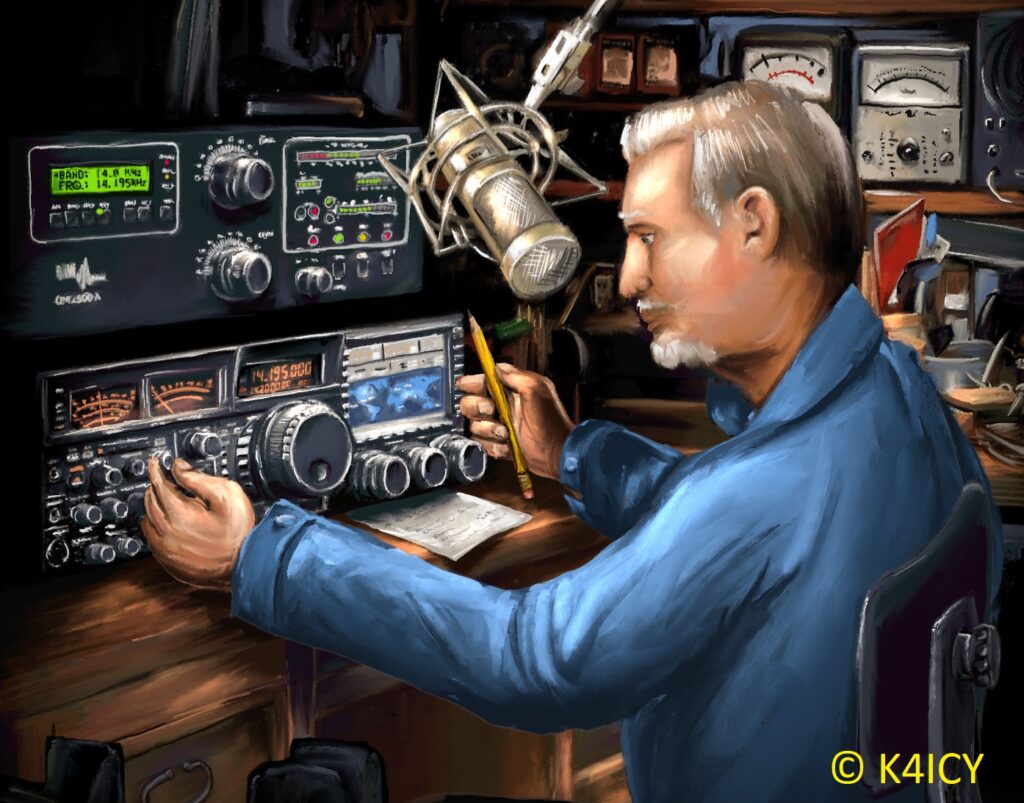What is Amateur Radio?
Amateur radio, or “ham radio,” is a fascinating hobby and service that allows people to connect over radio waves without relying on the internet or cell phone networks. Ham operators, or “hams,” can communicate across various distances, from local neighborhoods to worldwide, making it an ideal hobby for those interested in technology, communication, and emergency preparedness.

How to Become a Licensed Amateur Radio Operator in Bangladesh
In Bangladesh, anyone aged 18 or older with at least a Secondary educational qualification can apply for a ham radio license. The licensing process is regulated by the Bangladesh Telecommunication Regulatory Commission (BTRC) and follows these steps:
- Watch for the BTRC Circular: The BTRC periodically publishes a circular inviting interested individuals to apply. This circular provides details about the upcoming exam and requirements.
- Prepare for and Pass the Licensing Exam: The BTRC administers an exam covering radio technology, communication protocols, and regulations. Passing this exam is necessary to progress to the next step.
- Apply for a Callsign: Once you’ve passed the exam, you need to apply for an official callsign, which serves as your identification on the air.
- Complete the Licensing Procedures: After completing the necessary formalities, you’ll receive your license and callsign, officially becoming a licensed ham operator in Bangladesh.
Setting Up Your Amateur Radio Station in Bangladesh
As a licensed operator, you are eligible to import radio devices compatible with amateur frequencies, as long as they comply with BTRC regulations. Importing and setting up radio equipment in Bangladesh involves some regulatory procedures, so it’s important to consult BTRC guidelines to ensure that your equipment meets all legal requirements. Local amateur radio clubs and experienced operators can provide further guidance on equipment selection, setup, and operation.
What You Should Do as an Amateur Radio Operator
- Adhere to Radio Etiquette and Protocols: Amateur radio has specific communication protocols, including the use of “73” for best regards. Observing these will help you fit in with the global ham community.
- Participate in Emergency Preparedness: Hams play an important role in emergency communications, often volunteering their skills during local and national emergencies.
- Engage in Community Activities: Many operators join ham clubs or participate in events like Field Day, where hams test their skills and equipment.
- Experiment with Technology: Ham radio allows you to explore different modes and frequencies, so experiment with antennas, modulation techniques, and other aspects of radio communication to enhance your skills.
- Follow BTRC and International Regulations: Stay informed of the specific rules in Bangladesh, as well as international regulations, to operate legally and respect shared airspace.
What Not to Do as an Amateur Radio Operator
- Don’t Operate Without a License: Operating without a valid license is illegal in Bangladesh and could lead to fines or confiscation of your equipment. Always make sure your license is up-to-date.
- Avoid Broadcasting: Broadcasting, or sending a general message without a specific recipient, is against amateur radio regulations. Only direct communications are permitted.
- Don’t Interfere with Emergency Services: Certain frequencies are reserved for emergency services. Interfering with them is dangerous and can lead to penalties.
- Avoid Sensitive Topics: Topics like politics and religion are usually discouraged on the air, as amateur radio aims to maintain a friendly, respectful space.
- Don’t Use Excessive Power: Stay within the power limits set by BTRC. Using excessive power can disrupt other communications and may violate regulations.
Conclusion
Amateur radio is a rewarding hobby that connects people across distances and serves an important role in times of crisis. By following the licensing process in Bangladesh, respecting radio etiquette, and adhering to both national and international regulations, you can fully enjoy the benefits of being a ham operator and make meaningful connections worldwide.
–SARA
